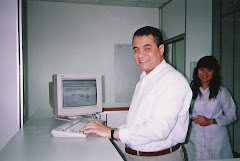

· In most people, acne will last for about three to four years and in 15% of the cases, acne can continue for eight -12 years.
· In a smaller percentage (5%), acne will last beyond age 25 and can continue up to age 40.
· In women particularly, acne may not occur until age 25.
· In 70% of the cases, women will notice a flare-up in the acne condition prior their menstrual period, perhaps due to an increase of androgens. Androgens are steroid hormones responsible for the development and maintenance of male physical characteristics.
· The more severe cases of acne tend to occur most often in men, because they produce more of the male hormones that stimulate acne formation.
· Women with a lot of body or facial hair, and those who have irregular periods, may be at increased risk of acne. These women may want to have their hormone levels evaluated by a physician.
There are four major factors responsible for causing acne. They act together to cause the characteristic pimples, whiteheads and blackheads associated with acne. They are:
Oil glands are located deep in the skin. They are also known as sebaceous glands.
· Each oil gland is connected to a tiny canal that contains a hair. The canal with its contained hair is called a follicle.
· The glands produce oil (also known as sebum) that flows to the surface of the skin through these canals to lubricate the hair follicles and the surrounding skin.
· The opening of the canal with the attached hair (follicle) onto the skin is the skin pore.

During puberty, the oil glands become overactive in response to hormonal changes.
Oily skin occurs when an overactive oil gland enlarges and overproduces oil. Acne develops when some of the pores (through which oil normally flows from the oil gland to reach the skin surface) become blocked, resulting in trapping of oil within the skin pores.

Although acne is not caused by a bacterial infection, bacteria do play a role in making the situation worse. The bacterium Propionibacterium acnes (P. acnes), is a normal part of the skin surface. It keeps the skin from being invaded by harmful bacteria.

Inflamed skin is characterized by redness, swelling, warmth and discomfort. Inflammation of the skin occurs because the body's immune system is acting to rid itself of a foreign substance. In the case of acne, this substance is either bacteria or the irritating compounds they have produced.

Adolescents are the most commonly affected. Because of the high hormonal activity during puberty, acne affects many teenagers. Those individuals whose oil glands produce more oil tend to be affected by acne more often than those whose glands don't produce excess oil.
Heredity Can Play A Role
Statistics suggest that heredity is a strong contributing factor for acne. A family history of acne means that there probably is a genetic basis for the condition.
Does stress cause acne?
Stress can be partially responsible for acne. Hormonal changes are associated with stress, and hormones stimulate the oil glands. People who are anxious may also change their behavior towards their appearance, leading to inappropriate treatment of the acne that can worsen the condition.
· Exercise
· Recreational breaks
· Good sleeping habits
· Meditation
· Laughter
· Social support network
· Reduced consumption of stimulants (such as caffeine)
It was long thought that fatty foods, chocolate and sugar aggravated acne. But dietary causes for acne have never been proven scientifically. So although a well-balanced healthy diet that includes plenty of water is recommended for overall good health, no special restrictions on food are imposed for preventing acne.

Detoxify your acne by eating the right food
Acne responds well to treatment, especially if treated early, at the onset of the condition.
· Prevent possible scarring
· Deal with inflamed and painful areas
· Limit the formation of new blackheads and whiteheads
· Lessen any stress or embarrassment associated with the acne
Very severe acne
· Resorcinol
· Salicylic acid
· Sulfur
Salicylic acid helps stop the shedding of the skin cells lining the oil glands.
Rercinol and sulfur work by breaking up the pimples.

Tetracycline can cause permanent discoloration of teeth that are still forming in children. It should not be taken by children who do not yet have all their permanent teeth.
Low-dose contraceptive. In 1992, a low-dose contraceptive, Ortho Tri-Cyclen, became available for the treatment of moderate acne in women 15 years or older.
This contraceptive acts by lowering hormonal activity. This results in reducing the overactivity of the oil glands.
In clinical studies, Ortho Tri-Cyclen showed improvement of acne in more than 80% of the participants in the study who were treated with it.

In cases where severe acne does not respond to long-term antibiotic and topical therapy, another oral medication is available. This is called isotretinoin (Accutane®) and is a synthetic derivative (made from chemicals) of vitamin A, which is essential for growth of healthy skin. It is the most effective treatment for severe acne.
After four to six months on the treatment, the acne had disappeared in up to 90% of those treated. But the acne may recur in some people, and another course of the treatment may be required.
. Blockage of the skin pores
. The role of the skin bacteria P. acnes
. Skin inflammation

Topical creams can cause a mild irritation or drying of the skin.
In 95% of individuals who take oral antibiotics, there have been no reported side effects. A small percentage of people, however, will experience:
. Nausea
. Diarrhea, in rare cases
. Some women may develop a yeast infection
. Tetracycline antibiotics, especially doxycycline, sometimes causes sun sensitivity, which means the individual may sunburn more easily
Accutane can be extremely effective in treating acne. But it is only recommended for severe cases, because it is expensive and does have possible side effects, some of which can be serious. Therefore, one must balance carefully the advantages of its use against the disadvantages of the possible side effects. Fortunately, the side effects do go away once the medication is stopped.
Side effects include:
. Headaches
. Chapped lips
. Drying of the mucous membranes such as the eyes and nose
. Nose bleeds
. Joint pains
. Muscle aches
. Damage to an unborn baby (if the woman is pregnant)
. Elevation in the blood lipids cholesterol and triglycerides
Mild acne usually resolves over time and may or may not leave some scarring.
When moderate to severe acne is not treated early enough, acne may scar the skin.
Pits are sometimes treated with collagen injections or removed by excision.
Dermabrasion, a "scrub brush" type of operation, is used to smooth out pit scars.
These methods are imperfect, however. Prevention with early and appropriate treatment is far more preferable.

. If you are a man who shaves, you should try to avoid nicking your pimples by softening your beard before shaving with soap and warm water. You may also want to try a safety razor and electric razor to decide which is most comfortable. A sharp blade and as little shaving as possible is also recommended.
. Using moist warm compresses on the skin may help open blocked pores.
. Some astringents work well on the pimples for reducing inflammation. They may be recommended for very oily skin, to be placed directly on the oily areas only.

Popping pimples makes things worse. Avoid picking or squeezing a pimple. Although it might be tempting to do this, it can make things worse by leaving a scar or causing more inflammation.

What Is The Long-Term Outlook For Acne?
Most people with mild, moderate, or severe acne show improvement within six months with the appropriate treatment. However, if no improvement is observed after three months, then the treatment should be changed.
For example, a common recommendation made by doctors for oral antibiotic treatments are two doses of tablets for six months. But if no improvement is observed after three months of an oral antibiotic regimen, then the doctor may suggest switching to a different antibiotic for the remaining three months.
New procedure for Acne treatment using Blue light
What is Blue Light Acne Therapy?
The FDA has approved the use of high-intensity, narrow-band blue light to treat mild to moderate acne. This pain-free light is safe and uses no ultraviolet (UV) light or lasers. When blue light is used as a treatment for acne, it kills p. acnes, the acne-causing bacteria that can form within the sebaceous glands and cause break outs. Blue light therapy can be administered alone through several systems that are available or in combination with a topical photosensitizing solution in blue light photodynamic therapy for acne treatment.
In general, blue light acne treatment is a safe and non-invasive method of treating acne. Blue light therapy targets the sebaceous glands, and not the surrounding tissues, killing the bacteria that cause acne. Many patients see significant improvement in their acne after two to four weekly treatment sessions of blue light therapy.
It is very effective, save, rapid in action, with no any side effect.
The good result start to appear immediately after using the medication, best result would take only one month of continuing medication.
· Neem Extract. To cure skin diseases such as boils, ulcers, eczema, and ring worm including acne and black heads affecting the face area.·
· Andrographis paniculata extract. An effective blood purifier, antibacterial, antiviral and works as antibiotic·
· Curcuma longa extract. Possesses antioxidant, tonic, blood purifying, digestive and anti-inflammatory property
SUGGESTED USE:
FOR Acne: Wash or cleanse face before use and than apply ACNE-Dandruff Formula On the affected area by using a small piece of cotton socked with the formula, Apply twice daily or once at night time, then wash it in the morning.
FOR Dandruff: apply the lotion on the scalp and let it wet, keep there to dry over night. Next morning, rinse the hair with water and dry. Repeat every night until you feel improvement, then apply 2 times every week later.
Shack will before use. Be careful when applied around eye area.
Package: 250 ML bottle
Price: only 7 USA dollars + shipping accordingly
Here is a summary of the important facts and information related to acne.
· Using herbal product to cure your acne is more saver and efficient way to eradicate the whiteheads, blackheads and stop any growing bacteria from doing harm to your skin. In addition, it is cheap, convenient, efficient, and end result is very promising
· Acne is a skin condition caused by overactive oil glands.
· Acne usually occurs in people during their teen and young adult years.
· High production of male hormones stimulate overproduction of oil.
· Skin bacteria can contribute to the problem by reacting with the oil.
· Whiteheads, blackheads and cysts will occur from pore blockage.
· Early treatment of acne has a high success rate.
· Topical creams of benzoyl peroxide, antibiotics, or retinoids are effective treatments for acne. But always having some side effect
· More severe acne cases require oral antibiotics or a synthetic (made from chemicals) vitamin A (essential for growth of healthy skin).



































